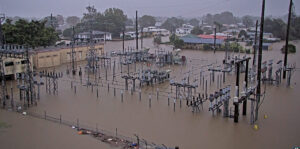Big Sticks, Batteries And Bills
As 2018 draws to a close, Australia’s climate and energy policy remains almost entirely unresolved. While the government under Scott Morrison has a Minister for bringing down energy prices, it really has no clear plans to reduce emissions and has flagged plans to underwrite new coal-fired power. Meanwhile Opposition Leader Bill Shorten has announced Labor’s 15 billion dollar energy package, with a whole suite of measures aimed at boosting renewable energy, cutting greenhouse gas pollution and reducing electricity prices.
In this episode of Follow The Money, the Australia Institute’s Richard Denniss and Senior Economist Matt Grudnoff join me to discuss some of the details of Labor’s plan, some of the big issues facing the National Electricity Grid and where we need to go from here.
Host: Ebony Bennett, Deputy Director at The Australia Institute // @ebony_bennett
Contributors: Richard Denniss, chief economist at the Australia Institute // @RDNS_TAI
Matt Grudnoff, senior economist at the Australia Institute // @MattGrudnoff
Producer: Jennifer Macey // @jennifermacey // Additional editing by Lizzie Jack and Andrea Cantle.
Title Track: Jonathan McFeat pulseandthrum.com Find us on Twitter @theausinstitute // Facebook.
You can subscribe to The Australia Institute’s podcast series Follow The Money on iTunes. Each episode busts some economic myths, interprets econobabble and helps you sound really smart at your next dinner party.
Australia Institute research:
> Renewable electricity policy for Australia
> Will-o’-the-ISP – Estimating renewable energy employment under the Integrated System Plan
> National Energy Emissions Audit: November
> Australians Want a Price on Pollution, Regret Abbott’s Repeal
Between the Lines Newsletter
The biggest stories and the best analysis from the team at the Australia Institute, delivered to your inbox every fortnight.
You might also like
What have the scientists ever done for us?
Australian scientific discoveries have improved people’s lives and made the economy more productive – so why is the CSIRO being forced to shed workers again?
SA Premier spreads gas industry misinformation
South Australian Premier Peter Malinauskas has told an event sponsored by the gas lobby that a new gas project in Narrabri, NSW, is needed to firm up his state’s electricity supply.
Climate crisis escalates cost-of-living pressures
A new report has found direct connections between the climate crisis and rising cost-of-living pressures. Failure to lower emissions now will only aggravate the crisis, with each moment of inaction compounding the pressure on households.





